The Buzziest New Word Coined the Year You Were Born

With nearly a million words estimated to be in the English language, it may seem like there are no more terms left to be coined. However, every year, Merriam-Webster adds new and notable words to their repertoire, and they’re showing no signs of slowing down. In 2019, the organization added nearly 700 new words and definitions to its vast collection, some of which—like stan and on-brand—you’ll recognize from being popularized on places like Twitter and Reddit.
But how does a word get added to the dictionary? Dictionary editors and lexicographers look through publications and websites with widespread national readership to find and collect new vocabulary that has become more common. From there, words are entered into a computer system as “citations,” but they’re only added to the dictionary as new words if they are shown to be widely used with a clear definition.
Curious which trendy term was added to the dictionary back when you were born? We’ve gone back through the archives to round up the buzziest new words added to Merriam-Webster every year since 1950.
1950: Goofball

No—we’re not talking about a goofy person. While most people know the word goofball in that sense, it wasn’t coined that way. Merriam-Webster added the word in 1950, but when they did so, it was in reference to a barbiturate sleeping pill.
1951: Aw-shucks

The meaning of aw-shucks has gotten a bit warped over the years. When Merriam-Webster recognized the term in 1951, it was defined as an adjective marked by a self-conscious manner; today, however, it’s used more as a stand-alone expression of modesty.
1952: Bafflegab

If you’re currently thinking to yourself that the word bafflegab sounds like gibberish, you’re not far off. Merriam-Webster added the word in 1952, and it’s used to describe “wordy and generally unintelligible jargon”—in other words, gibberish.
1953: Off-the-wall

“Off-the-wall” is the title of Little Walter’s 1953 instrumental blues song. Coincidentally, the song came out the same year that Merriam-Webster added the term to its indexes. It’s used to describe anything highly unusual.
1954: Rock and Roll

The separate terms “rock” and “roll” have been around for centuries, but it wasn’t until 1954 that Merriam-Webster added the compound term rock and roll to the dictionary to describe the popular amplified music of the time. The term, which can also be spelled rock ‘n’ roll, was popularized by Ohio disk jockey Alan Freed, who played early forms of rock and roll music.
1955: DIY
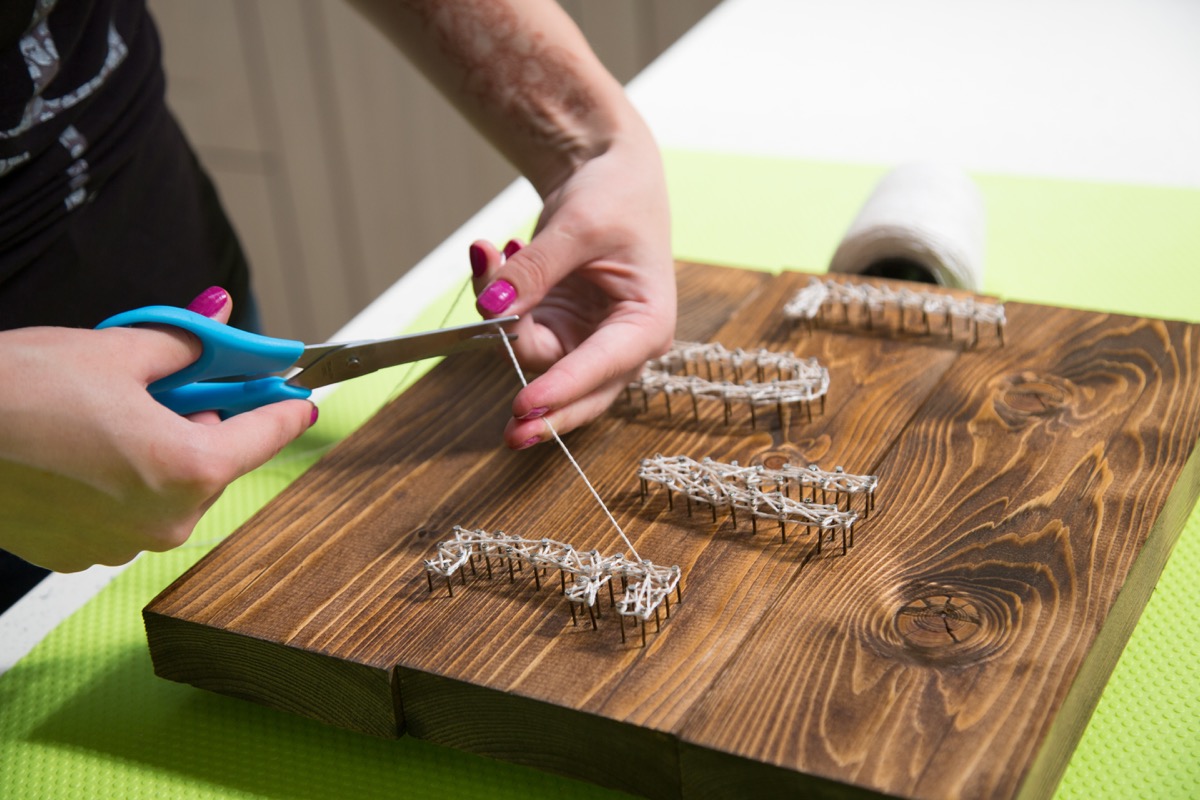
Merriam-Webster added the acronym for “do-it-yourself” to the dictionary in 1955. The DIY movement was popularized in the first-half of the 20th century through project-guided magazines like Popular Mechanics and Mechanix Illustrated.
1956: Psychedelic
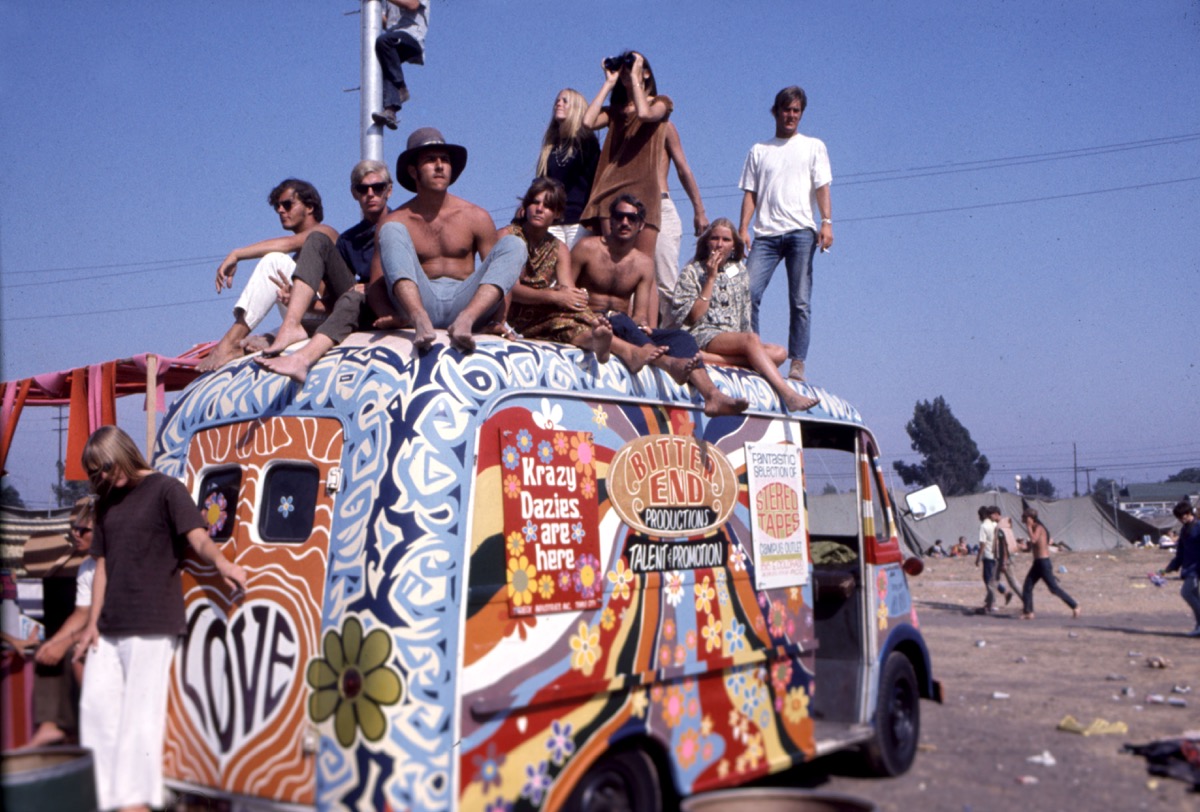
Years before the groovy ’60s and ’70s, the word psychedelic was formally acknowledged by Merriam-Webster in 1956. Though the term has since been broadened to describe the vibes of those decades, its origin refers to hallucinative drugs; it was first proposed by Dr. Humphry Osmond, who combined the Greek words psyche (mind) and delos (manifesting) to describe the mind-manifesting experience the drugs produce.
1957: Overkill

The word overkill is typically used in modern-day to describe an excess of anything. However, when it was coined during the Cold War era, it was used more specifically to describe excess in terms of warfare—as in, “obliterating a target with more nuclear force than required.”
1958: Rom-com

It’s hard not to love cheesy rom-coms, but they weren’t known as such until 1958. The shortened term for “romantic comedy” was created in a time full of the best of the best when it comes to rom-coms. Roman Holiday, anyone?
1959: Klutz

Though the word klutz is of Yiddish origins, it found its way into the English Merriam-Webster dictionary in 1959. Created as a 1950s slang term, it’s simply a concise way to describe a clumsy person.
1960: Doofus
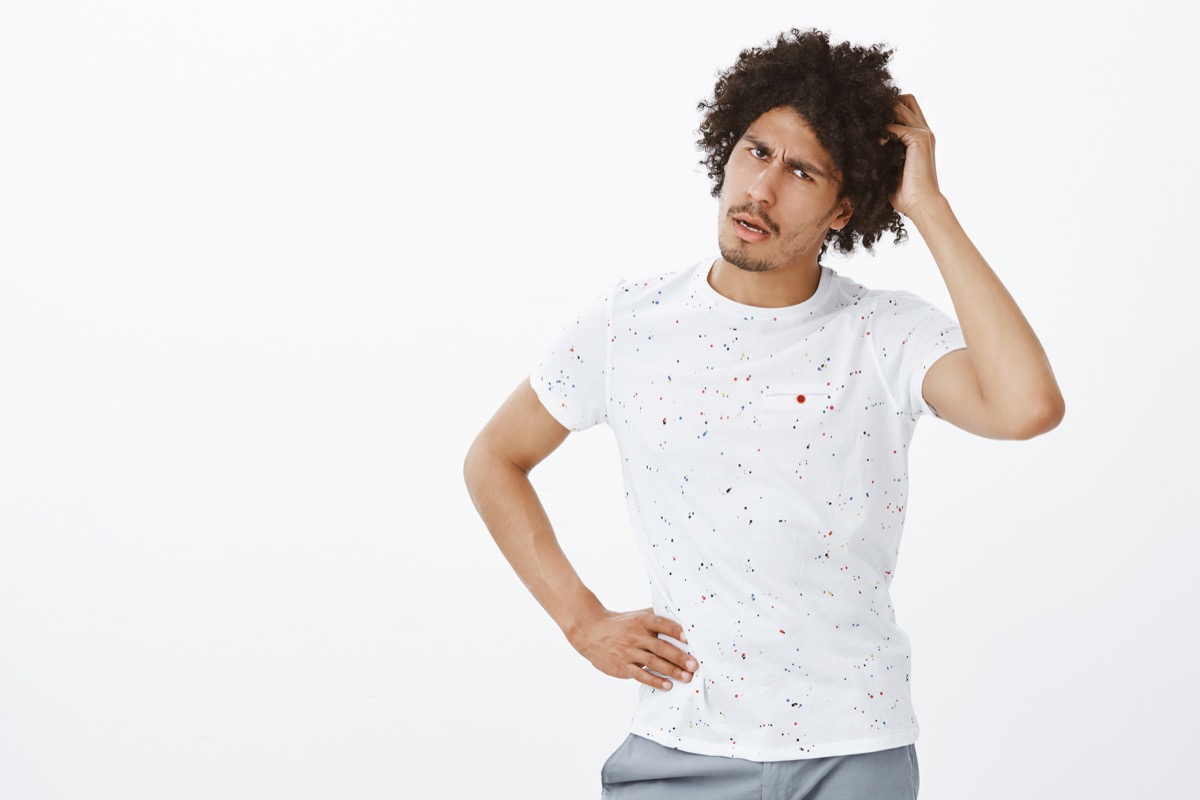
You’re no doofus if you don’t know the origin behind this word—because there’s no clear answer! According to Merriam-Webster, the word—which describes a foolish person—was added to the dictionary in 1960, but its origin has two possibilities: one being that it was a substitute for the informal word goofus, and the other being that it was a derivative of the Scottish word doof, which also refers to someone perceived as foolish.
1961: Paparazzi
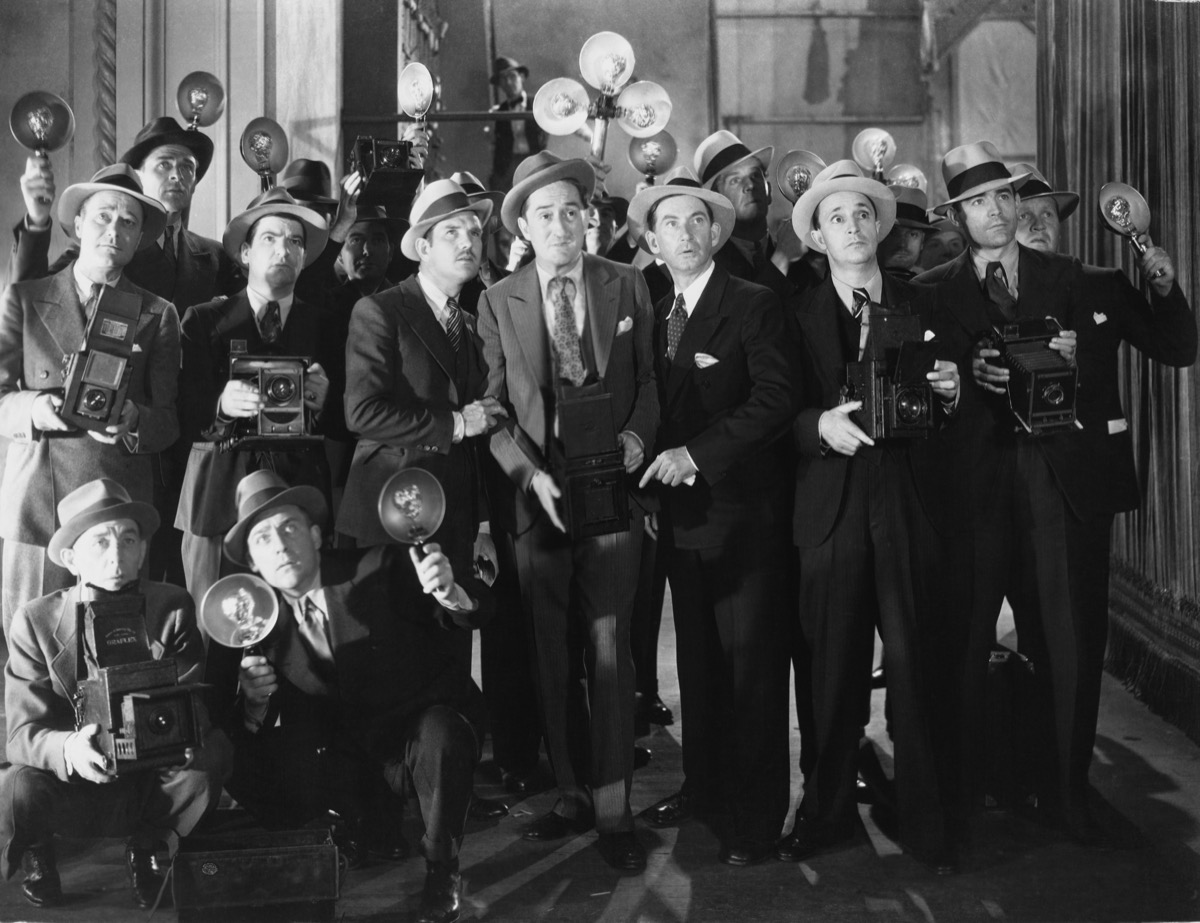
Though members of the paparazzi were running after stars like Elizabeth Taylor and Cary Grant all throughout the ’60s, the word wasn’t added to Merriam-Webster until 1961. The singular term paparazzo first appeared in Federico Fellini’s 1960 film La Dolce Vita as the name of a persistent photographer—and from there, it was popularized as the name for celebrity photographers in a 1961 Time article titled “Paparazzi on the Prowl.”
1962: Miniskirt
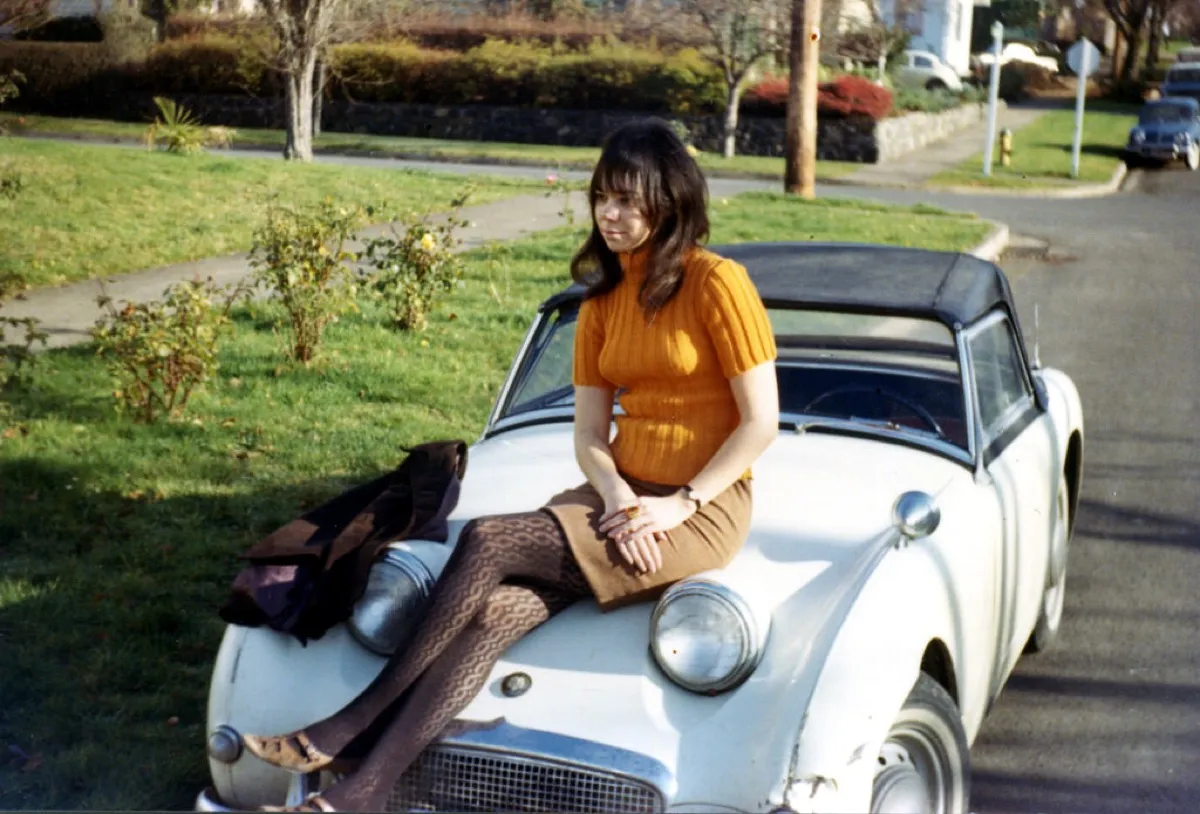
Fashion in the 1960s was revolutionary: Pastels were at an all-time high; go-go boots were making it big; and hemlines were getting higher by the second. Appropriately, seeing as skirts went mini in the ’60s, the word miniskirt was born and added to the Merriam-Webster dictionary in 1962.
1963: Disco
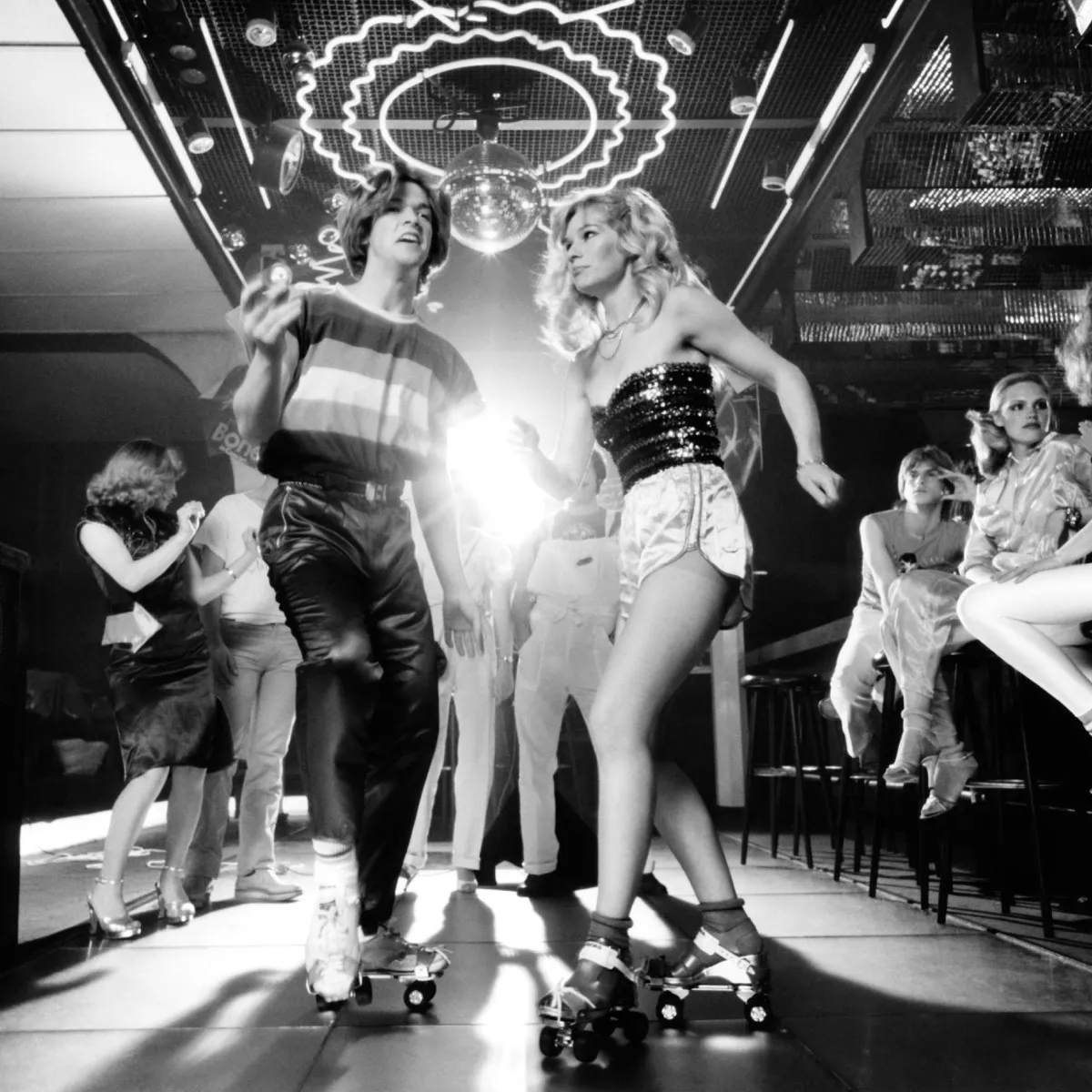
Before it became known as the popularized music of the ’70s, the word disco was the shortened form of discothéque, a French term for underground Parisian nightclubs during World War II. The term carried into clubs that opened in American during the ’60s, which led to the shorthand disco being added to the dictionary by Merriam-Webster in 1963.
1964: Folkie
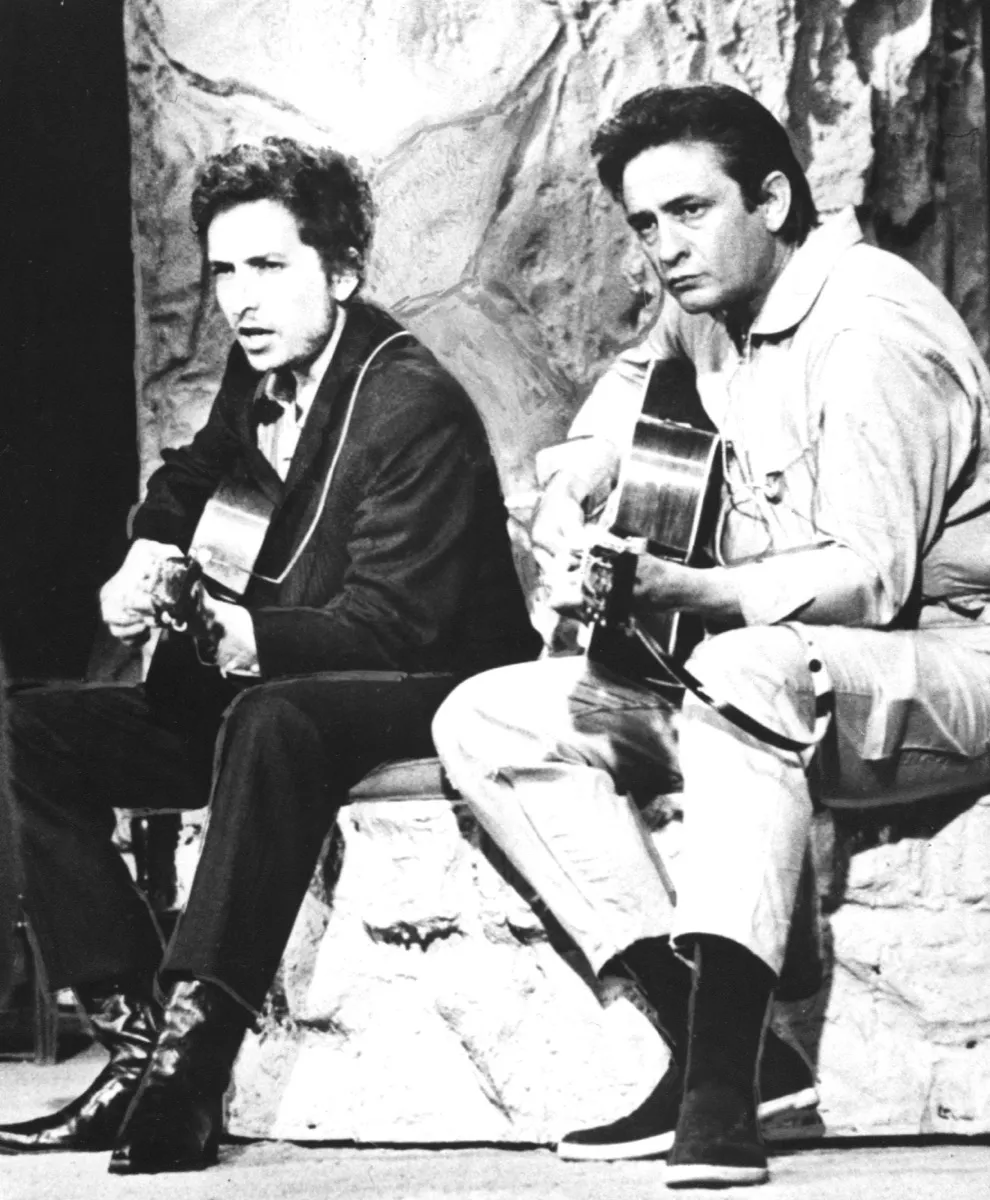
What do Bob Dylan, Leonard Cohen, and Woody Guthrie all have in common? They’re all folkies! American folk music peaked in the mid-1960s, which is how (and why) the term folkie—referring to a folk singer—was coined and added to the dictionary during this time.
1965: Hippie
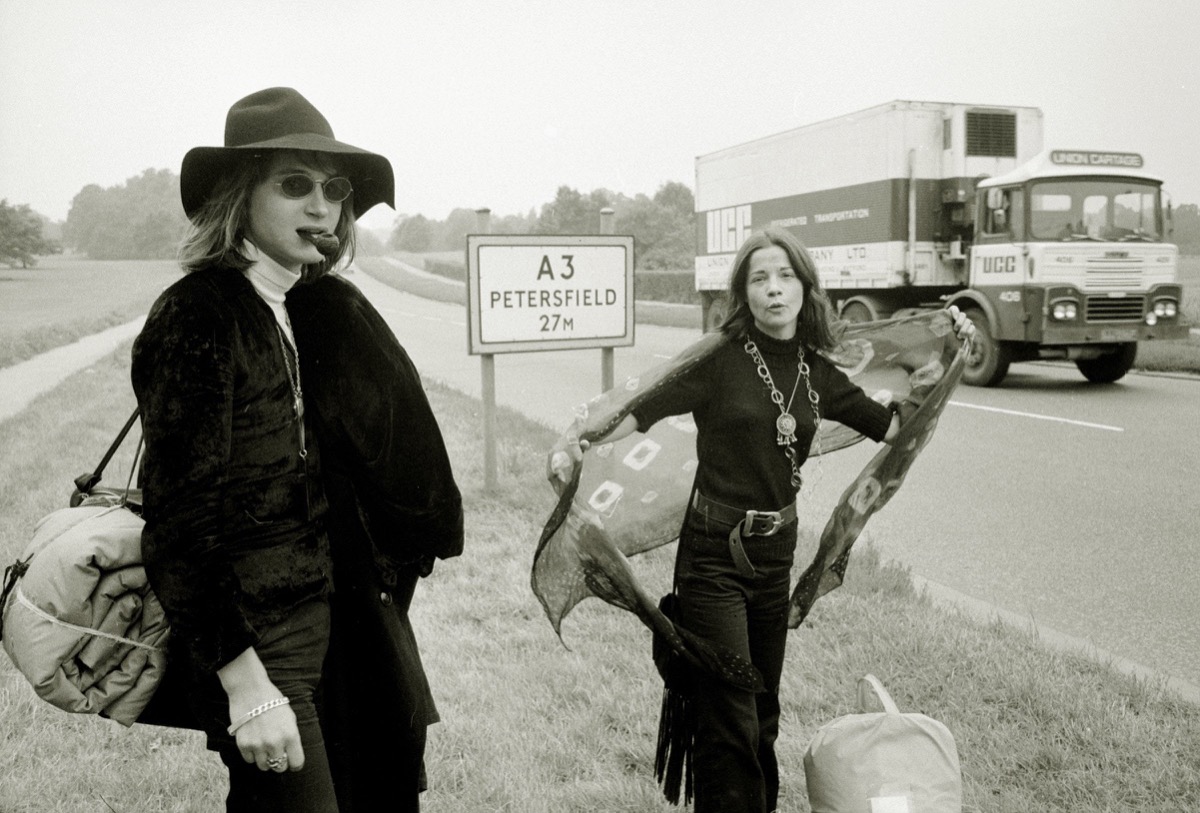
Hippie, derived from the word hip (meaning cool or up-to-date), was popularized by journalists in the early 1960s as a way to label the new, arising youth subculture that was rejecting the norms of established society. It was adopted into the Merriam-Webster dictionary in 1965 and has since socially widened to describe any “unusually” dressed, long-haired person.
1966: Groupie

Nowadays, groupie pretty much describes any dedicated fan of a celebrity who travels to attend as many of the star’s public appearances as possible. However, back when it was recognized in 1966, it specifically referred to female fans of a rock group who followed them around on tour—most often in search of brief sexual encounters.
1967: Supermodel
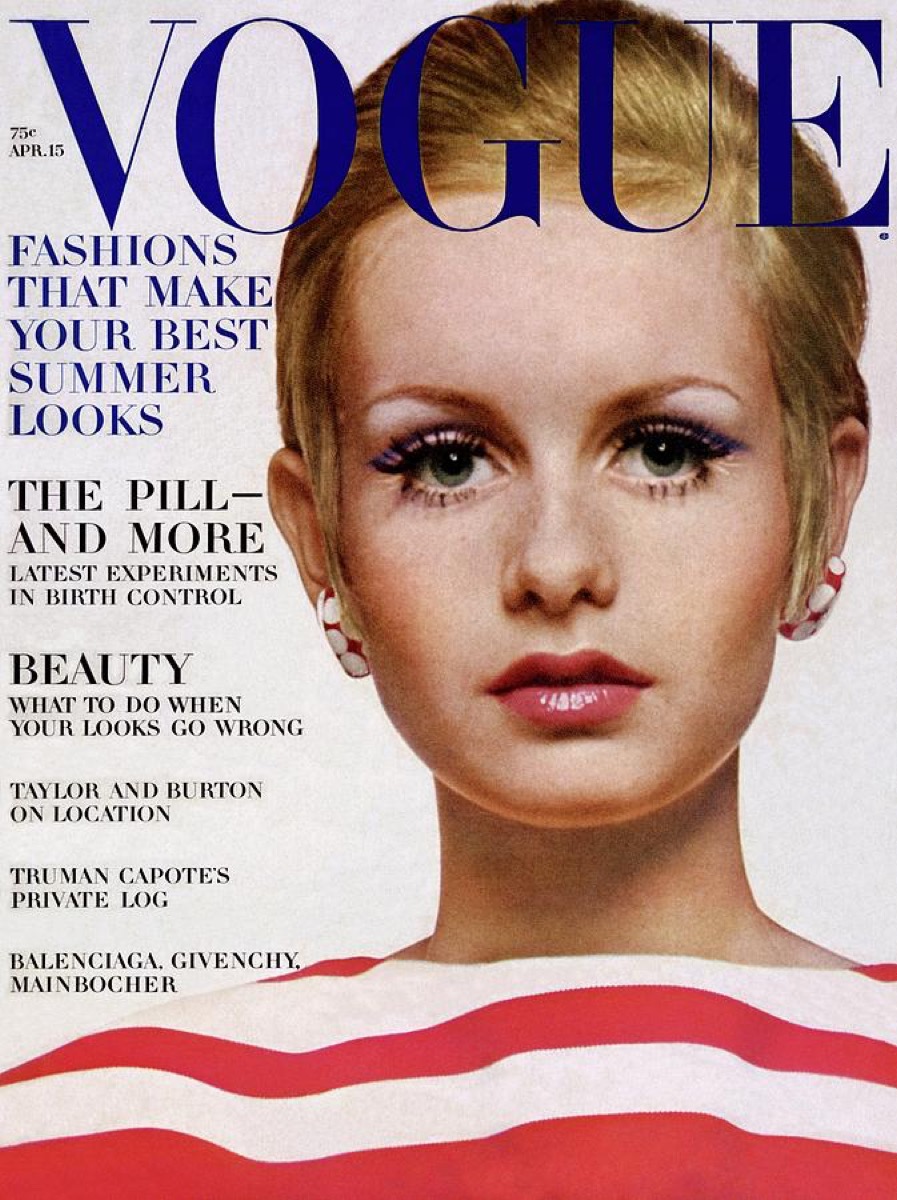
Supermodel, at this point, has basically become interchangeable with the term model. However, it once only referred to extremely successful and famous models, i.e. the superior. The term was used informally throughout the ’60s, but its popularization came when magazines started to refer to Twiggy as a supermodel in 1967.
1968: Reggae
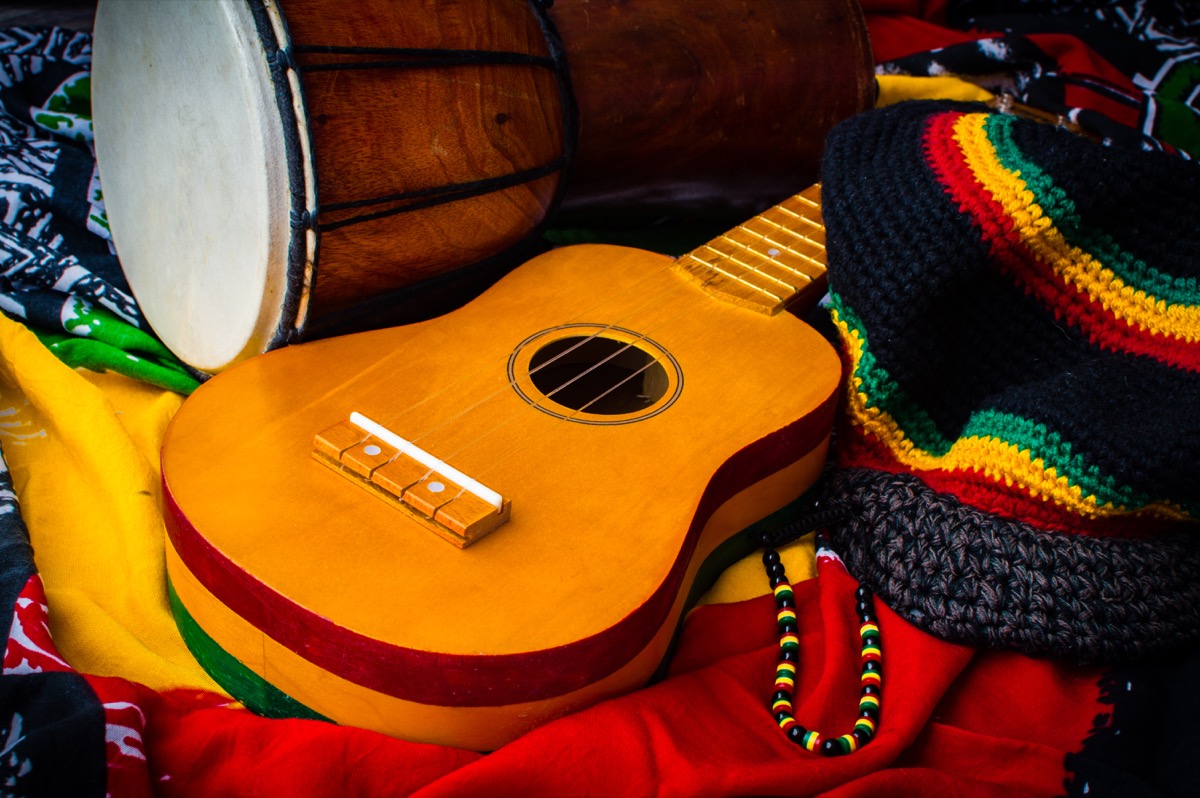
The first popularized use of the word reggae was in the 1968 Toots and Maytals’ single “Do the Reggay.” Describing Jamaican-style music, reggae was subsequently acknowledged by Merriam-Webster in 1968 and later made notably mainstream by musician Bob Marley.
1969: Ew

While the word ew became widely used in the ‘80s with the development of valley-girl speak, its first appearance was in the late ‘60s. Used to express disgust, the term was accepted by Merriam-Webster in 1969.
1970: Newbie

The word newbie is a slang term synonymous with words like beginner and newcomer, and it’s used to describe someone who has recently started a particular activity. While its etymology is unclear, it was popularized by the United States Army in the ‘60s and ‘70s as a way to describe new troops.
1971: Beatbox

While the word beatbox has been transformed to describe a mouth-produced, beat-like sound, it originated as an electronic device that mimics instrumental beats. The musical prop was heavily used during the 1970s, back when the term was added to Merriam-Webster’s pages.
1972: Woke
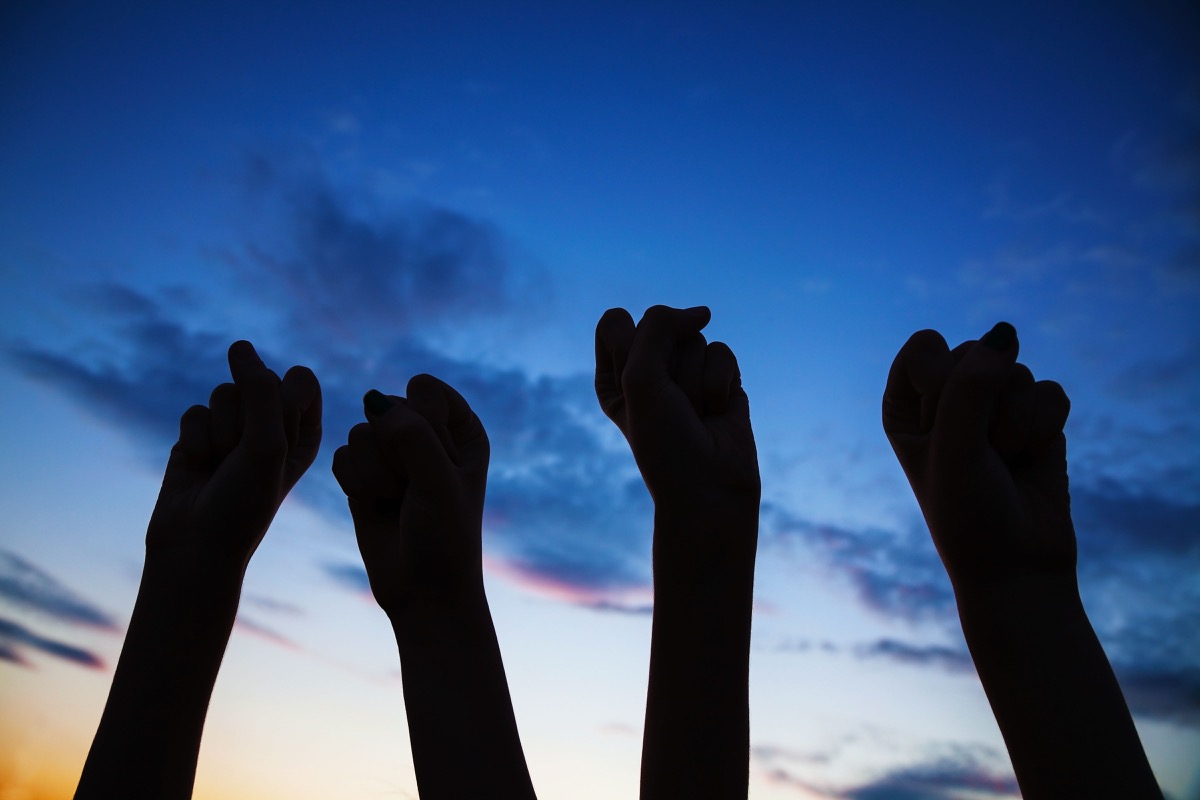
If you’re a savvy internet user in 2019, you know it’s important to be woke–meaning you are someone who is aware of social issues, especially in relation to racial injustice. But though woke is thrown around today frequently, it was coined all the way back in 1972, back when it was made popular by the play Garvey Lives!
1973: Watergate
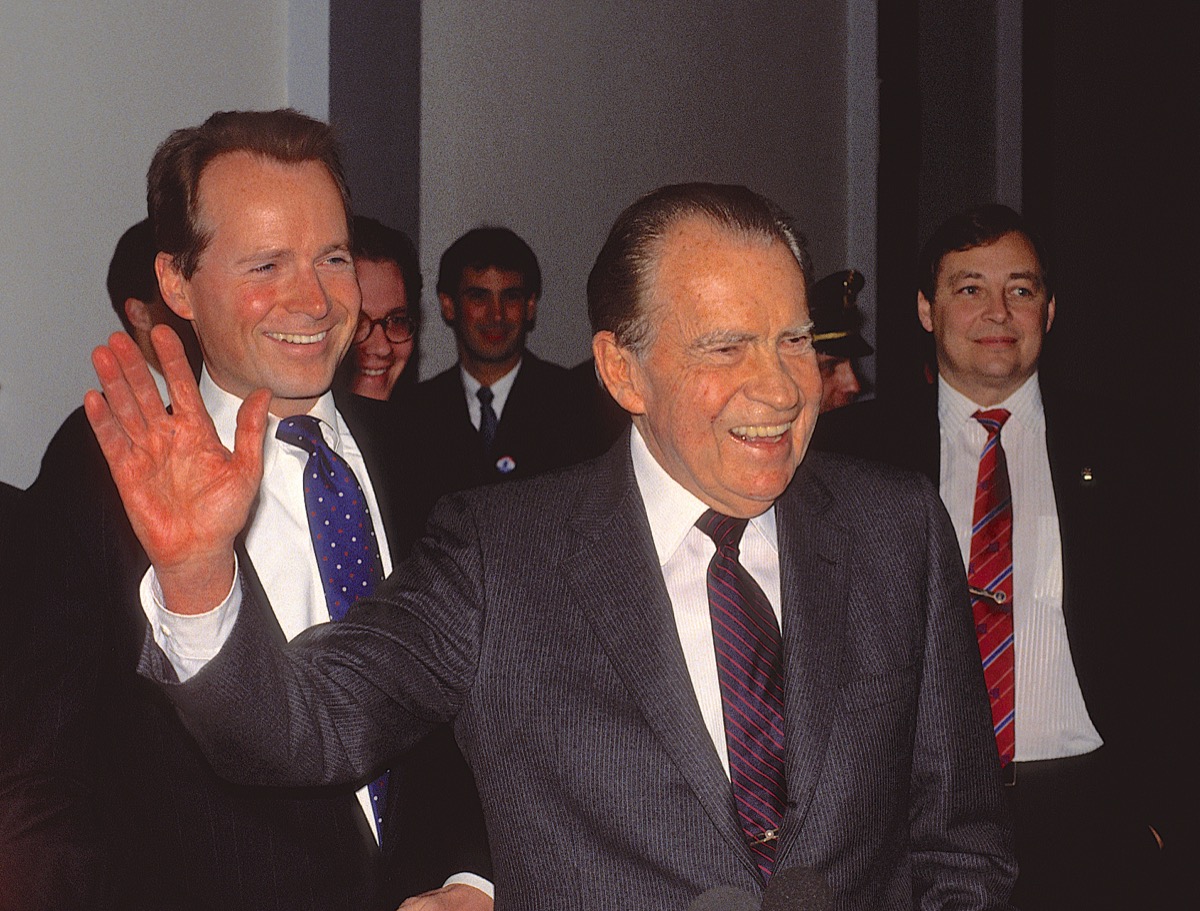
Richard Nixon’s 1972 Watergate scandal not only left a mark on his legacy, but on linguistics as well. The term watergate–added to Merriam-Webster in 1973–is used to describe any scandal or cover-up made by someone in power, most often in reference to the president.
1974: Internet

Though the internet as we know it came around in 1990 through the aide of the World Wide Web, the actual conception happened during the mid-20th century. When the term was added to Merriam-Webster in 1974, it only referred to the then-hypothetical shared network between numerous, separate computers.
1975: Downsize

Downsizing was added to Merriam-Webster in 1975 to describe reducing something in size. The term has seen quite an evolution over the years: In the ’70s, it was used to describe automakers building smaller automobiles; in the ’80s, it was used to reference corporations cutting down their number of employees; and more recently, it’s often used to refer to a couple buying a smaller house after becoming empty nesters.
1976: Meme

The Internet may be ruled by memes in 2019, but did you know that the word was first coined all the way back in 1976? Long before the days of Grumpy Cat, the term meme was used to describe any idea or item that rapidly spread from person to person within a culture.
1977: Cringeworthy

We’ve all endured our fair share of cringeworthy—or embarrassing—things, especially in the internet era where nothing disappears. But what exactly was cringeworthy when the term was coined in 1977? Perhaps John Travolta‘s dancing in Saturday Night Fever?
1978: Eye Candy

The term eye candy came around in the late ’70s to describe something or someone that was attractive to look at. When it was coined by Merriam-Webster, it followed the popular companion phrase ear candy, which is precisely the phrase we’d use to describe Bruce Springsteen’s album Darkness on the Edge of Town from the same year.
1979: Hip-hop
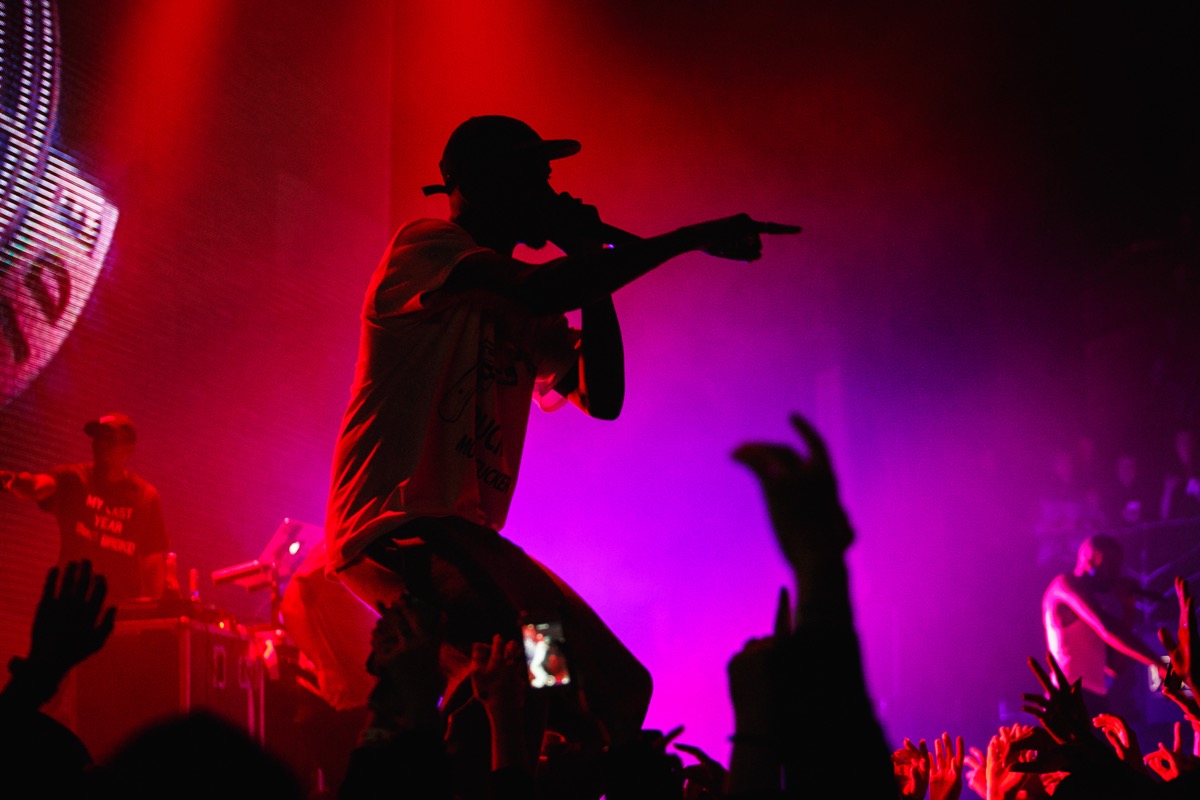
Hip-hop music found its beginning in 1973, but the term used to describe it wasn’t added to Merriam-Webster until 1979. And while it originally only described the stylized rhythmic music that accompanied rap at the time, it has broadened to also describe the culture surrounding the genre.
1980: High Five

While the origin of this hand gesture has many theories, the most widely known one is that it actually began in the world of sports. When Lamont Sleets started slapping his hand in celebration with his Murray State teammates in the late ’70s, the high five subsequently became the gesture of the sports world, and Merriam-Webster went on to add the term to the dictionary in 1980.
1981: Trash Talk

The term trash talk also appears to have originated in the sports world. Describing the taunting comments made between opponents in hopes of intimidation, trash talk was added to the Merriam-Webster dictionary in 1981 following its popularization by Muhammad Ali.
1982: E-mail

Short for electronic mail, e-mail refers to the method of exchanging messages electronically. The act of sending messages electronically became widely used at MIT in the ’60s, but Merriam-Webster did not add the word to the dictionary until 1982.
1983: Yup

Yup. Yep. Yes. They’re all just various versions of an expression of agreement, but yup wasn’t added to the dictionary by Merriam-Webster until 1983.
1984: Moonwalk
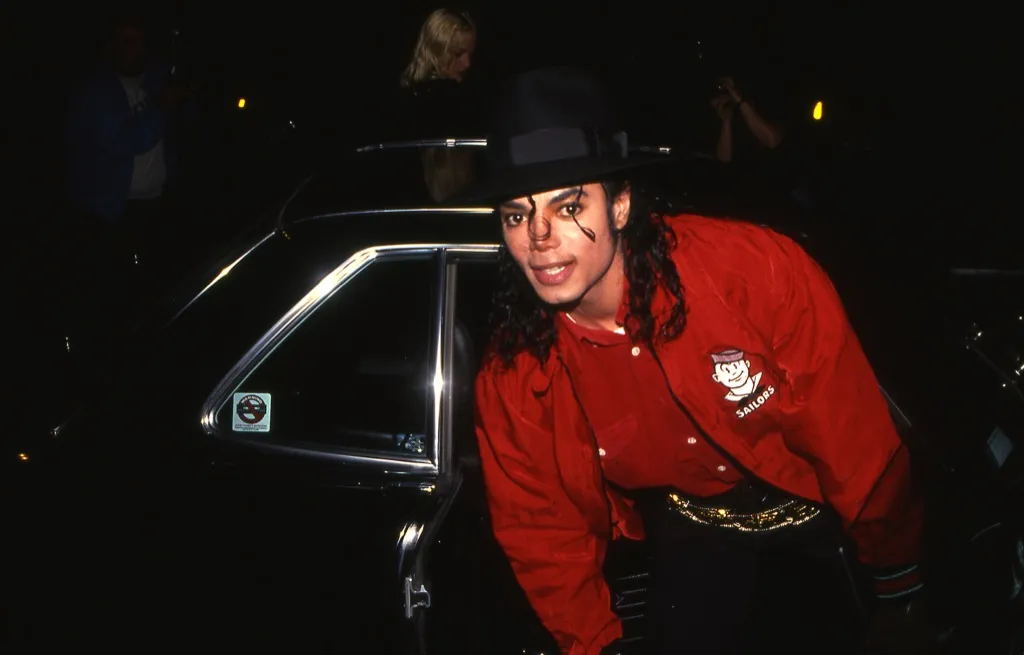
Michael Jackson took the world by storm when he introduced his signature dance move in 1983. The backsliding dance was called moonwalking, and Merriam-Webster added the term to the dictionary the following year.
1985: Anime
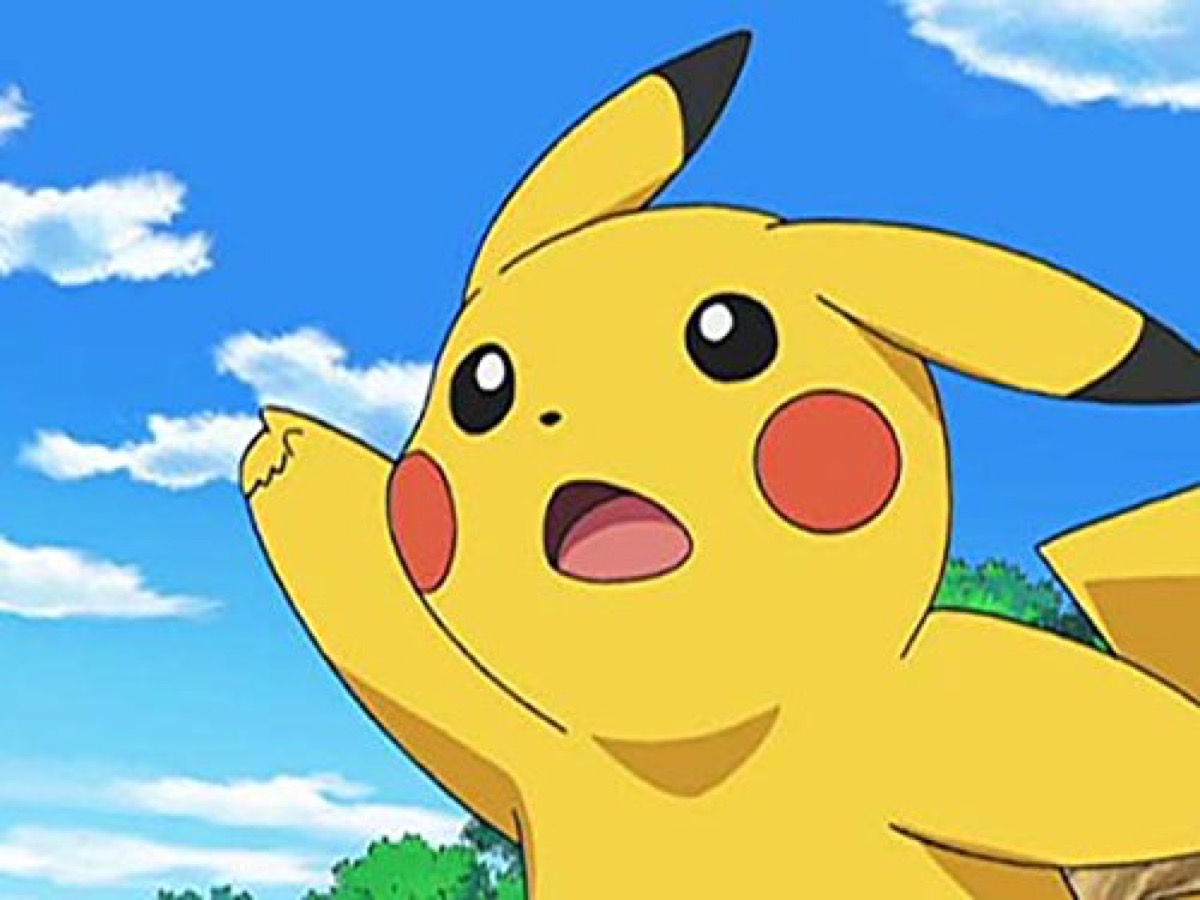
Recognized by Merriam-Webster in 1985, anime is a term used to describe a specific Japanese-style of animation that rose to popularity in the ’70s. This style of animation features spirited graphics and colors, so it makes sense that its name derives from the French word for lively.
1986: McJob
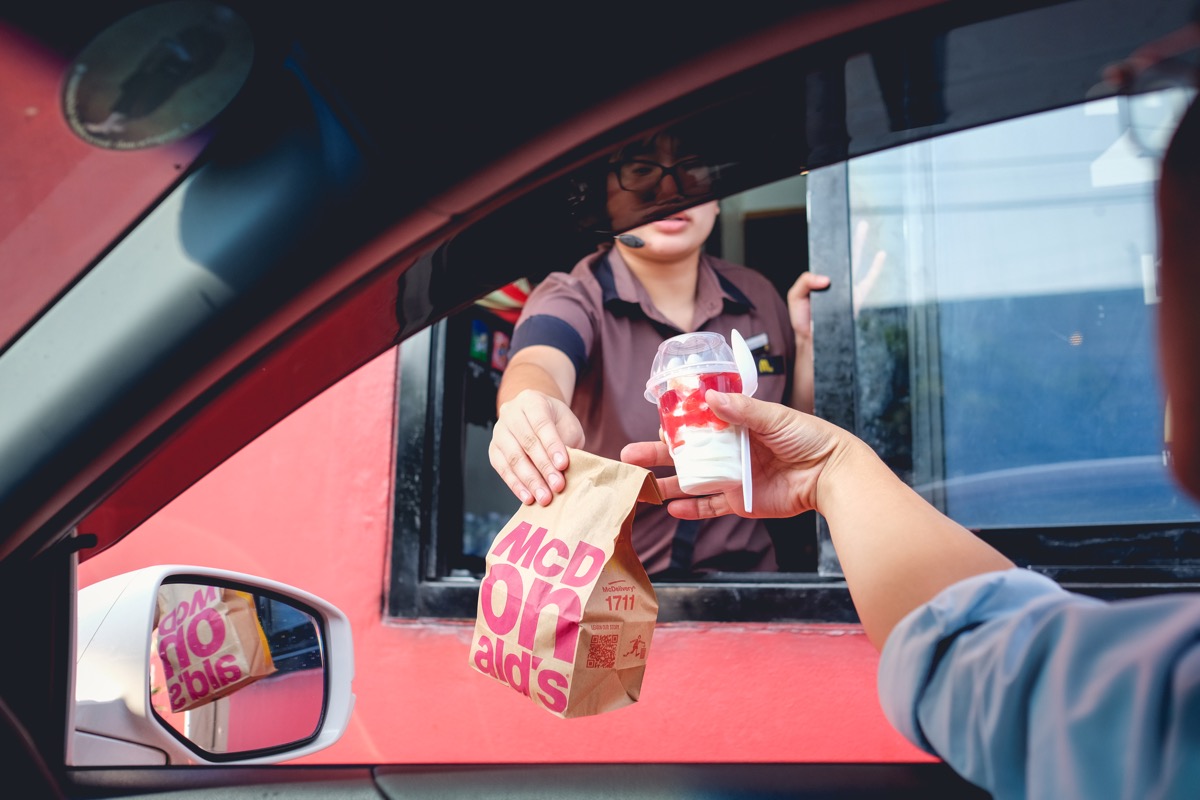
McJob was controversially added to Merriam-Webster in 1986 to describe a low-paying job that requires little skill and has little opportunity for advancement—i.e, a job at McDonald’s, which is where the term originated from. While the word was popular in the ’80s, its usage has since dwindled; according to Merriam-Webster, it’s in the bottom 30 percent of words used today.
1987: Emoticon

Back before there were emojis available at our fingertips, people used to have to type out their facial expressions using various keyboard characters—it was so much work (insert eye-rolling emoji)! These characters were called emoticons, a term which Merriam-Webster recognized in 1987.
1988: Emo
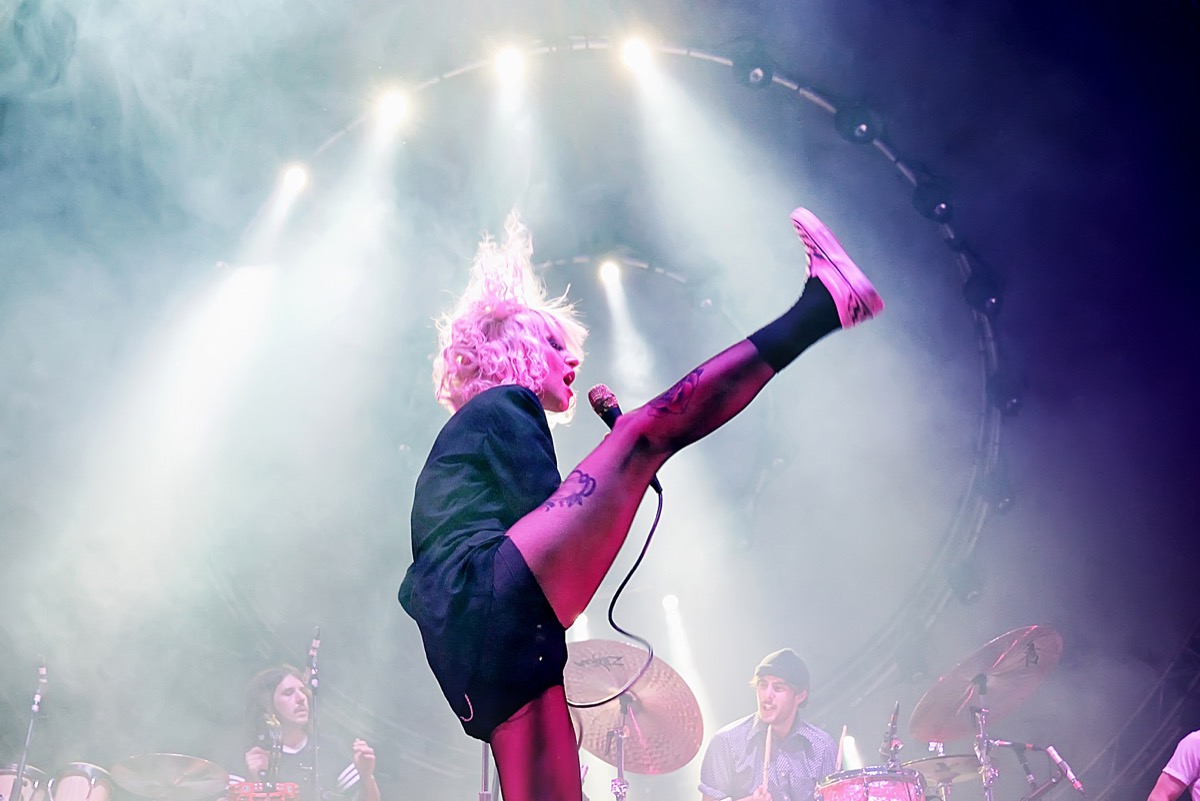
Most 2000s kids can testify to having an “emo phase,” brought upon by popular bands like Taking Back Sunday and Paramore. However, the word emo was actually added to the dictionary by Merriam-Webster back in 1988 to describe an introspective form of rock music.
1989: Scrunchie

Scrunchies were the hair accessory of the ’80s and ’90s, and they have even reemerged into popularity in recent years. The word was added to the dictionary in 1989 after being patented a few years before by Rommy Revson, who named the creation after her dog Scrunci.
1990: Spam

No, we’re not talking about the food. When the term spam was recognized by Merriam-Webster in 1990, it was done so to describe unsolicited messages sent to a large number of recipients. Since then, the noun itself has been transformed into a verb meant to describe the act of sending, well, spam.
1991: Mixtape
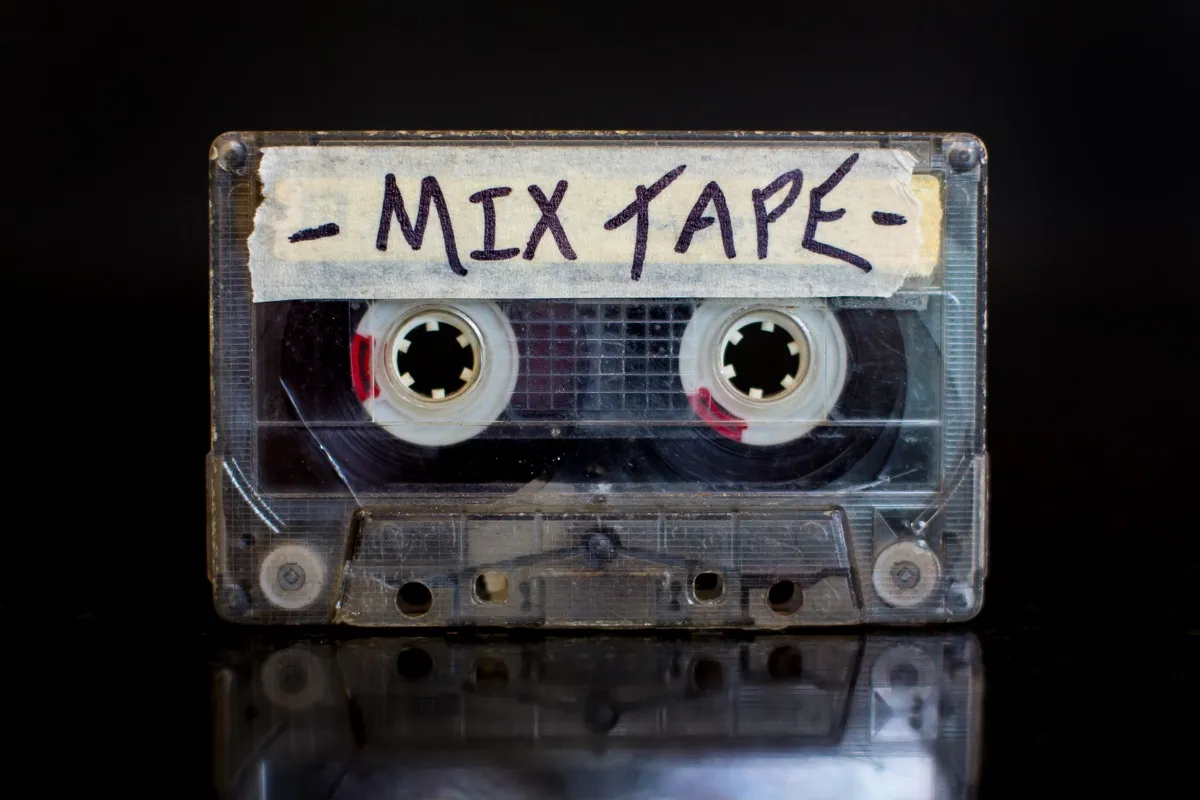
While mixtapes were commonplace in the ’70s, the word wasn’t formally acknowledged by Merriam-Webster until 1991—and by then, mixtapes were made on CDs and not actual tapes! The term is used to describe any compilation of songs recorded from various sources.
1992: Buzzkill

Nowadays, buzzkill refers to anything that elicits a depressing or negative mood. However, as described in a New York Times article from 1993, the word was specifically used in the ’90s to reference something or someone that killed a buzz in terms of drugs or booze—like a cop breaking up a party.
1993: Website

With the rise of the internet, so too came the rise of internet-specific terminology. Tim Berners-Lee‘s invention of the World Wide Web in 1990 led to the need for new tech-savvy vocab, and so the word website was born and added to Merriam-Webster in 1993.
1994: Dot-com

Another internet term, dot-com was added to Merriam-Webster in 1994. Phonetically describing the typical ending of most URLs, it was coined as a name for any company marketing their products or services online via a website.
1995: Webcast

A decade before YouTube was born, the term webcast was added to Merriam-Webster to describe any “transmission of sound and images via the World Wide Web.” One of the earliest webcasts was the Macintosh New York Music Festival in 1995, during which Manhattan clubs transmitted live music to computer screens worldwide.
1996: Face-palm

Covering your face with a hand to express embarrassment or dismay has been formally referred to as face-palming since Merriam-Webster added it to the dictionary in ’96. The action has become popularized in recent years through memes, but it was even present in earlier years as evident by Henri Vidal’s 1896 “Cain” statue.
1997: Emoji
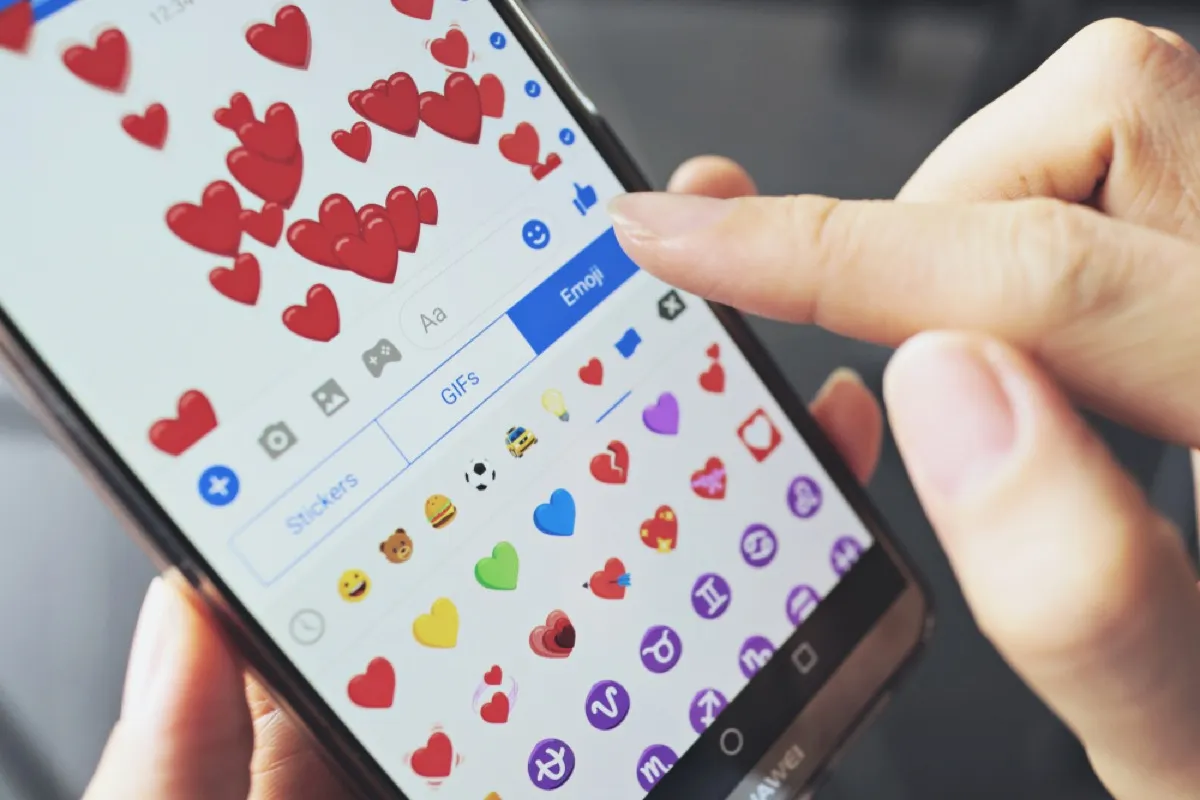
Present-day emoticons that come with just the touch of a button are referred to as emojis. The term was added to the Merriam-Webster dictionary in 1997 after the first emojis were created in Japan. And for more on emojis, check out the 25 Secret Second Meanings of These Popular Emojis.
1998: Cyberbullying

The rise of social media unfortunately brought along the rise of cyberbullying—the act of posting mean-spirited messages about someone electronically. Since the word was added to the dictionary in 1998, cyberbullying has brought upon a slew of legislation and anti-bullying campaigns.
1999: Blog

Blog was recognized in 1999 as the shortened form of weblog, meant to describe any website that contained the personal reflections or comments of one writer. One of the early pioneers of blogging was Justin Hall, who began documenting his life online in 1994.
2000: Google

Though the massive search engine was founded in 1998, the verb for searching something on Google—which has now become synonymous with searching anything online—was only added to Merriam-Webster at the turn of the century. Don’t believe us? Google it for yourself! And for more on the search giant, check out these 20 Secret Google Tricks That Will Absolutely Change Your Life.
To discover more amazing secrets about living your best life, click here to follow us on Instagram!